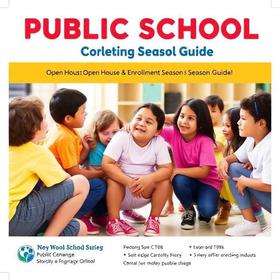Top Rankings
West Babylon Union Free School District ranks among the top 20% of public school district in New York for:
Category
Attribute
Graduation Rate
Highest graduation rate (Top 5%)
Diversity
Most diverse schools (Top 1%)
Community Size
Largest student body (number of students) (Top 1%)
For the 2025-26 school year, there are 4 public preschools serving 1,254 students in West Babylon Union Free School District. This district's average pre testing ranking is 8/10, which is in the top 30% of public pre schools in New York.
Public Preschools in West Babylon Union Free School District have an average math proficiency score of 58% (versus the New York public pre school average of 48%), and reading proficiency score of 47% (versus the 41% statewide average).
Minority enrollment is 52% of the student body (majority Hispanic), which is less than the New York public preschool average of 62% (majority Hispanic).
Overview
This School District
This State (NY)
# Schools
7 Schools
1,576 Schools
# Students
3,601 Students
680,405 Students
# Teachers
321 Teachers
57,270 Teachers
Student-Teacher Ratio
11:1
11:1
Student By Grade
District Rank
West Babylon Union Free School District, which is ranked #324 of all 1,008 school districts in New York (based off of combined math and reading proficiency testing data) for the 2022-2023 school year.
The school district's graduation rate of 96% has increased from 92% over five school years.
Overall District Rank
#303 out of 1017 school districts
(Top 30%)
(Top 30%)
Math Test Scores (% Proficient)
62%
52%
Reading/Language Arts Test Scores (% Proficient)
53%
49%
Science Test Scores (% Proficient)
83%
78%
Graduation Rate
96%
87%
Students by Ethnicity:
Diversity Score
0.63
0.73
% American Indian
n/a
1%
% Asian
3%
11%
% Hispanic
36%
31%
% Black
10%
16%
% White
49%
38%
% Hawaiian
n/a
n/a
% Two or more races
2%
3%
All Ethnic Groups
District Revenue and Spending
The revenue/student of $32,694 is higher than the state median of $31,324. The school district revenue/student has stayed relatively flat over four school years.
The school district's spending/student of $32,125 is less than the state median of $32,199. The school district spending/student has stayed relatively flat over four school years.
Total Revenue
$118 MM
$78,541 MM
Spending
$116 MM
$80,737 MM
Revenue / Student
$32,694
$31,324
Spending / Student
$32,125
$32,199
Best West Babylon Union Free School District Public Preschools (2025-26)
School
(Math and Reading Proficiency)
(Math and Reading Proficiency)
Location
Quick Facts
Rank: #11.
Santapogue School
(Math: 60-64% | Reading: 55-59%)
Rank:
Rank:
7/
Top 50%10
1130 Herzel Blvd
West Babylon, NY 11704
(631) 376-7401
West Babylon, NY 11704
(631) 376-7401
Gr: PK-5 | 356 students Student-teacher ratio: 10:1 Minority enrollment: 62%
Rank: #22.
Tooker Avenue School
(Math: 65-69% | Reading: 40-44%)
Rank:
Rank:
6/
Top 50%10
855 Tooker Ave
West Babylon, NY 11704
(631) 376-7601
West Babylon, NY 11704
(631) 376-7601
Gr: PK-5 | 292 students Student-teacher ratio: 11:1 Minority enrollment: 61%
Rank: #33.
John F Kennedy School
(Math: 55-59% | Reading: 45-49%)
Rank:
Rank:
6/
Top 50%10
175 Brookvale Ave
West Babylon, NY 11704
(631) 376-7801
West Babylon, NY 11704
(631) 376-7801
Gr: PK-5 | 333 students Student-teacher ratio: 11:1 Minority enrollment: 32%
Rank: #44.
Forest Avenue School
(Math: 40-44% | Reading: 40-44%)
Rank:
Rank:
4/
Bottom 50%10
200 Forest Ave
West Babylon, NY 11704
(631) 376-7301
West Babylon, NY 11704
(631) 376-7301
Gr: PK-5 | 273 students Student-teacher ratio: 11:1 Minority enrollment: 55%
Recent Articles

Charter Schools vs Public Schools 2025: Key Differences & Trends
Explore updated 2025 insights comparing charter schools vs public schools, enrollment, academic outcomes, funding, and real-world examples for families and educators.

Are Public Schools Ready for the 21st Century? 2025 Update
Explore 2025 insights on whether public schools are ready for the 21st century, covering performance, technology, equity, funding, and future-ready learning.

Public School Open House & Enrollment Season Guide
A parent-focused guide to the public school open house and enrollment season, with expert questions, timelines, and decision tips.





